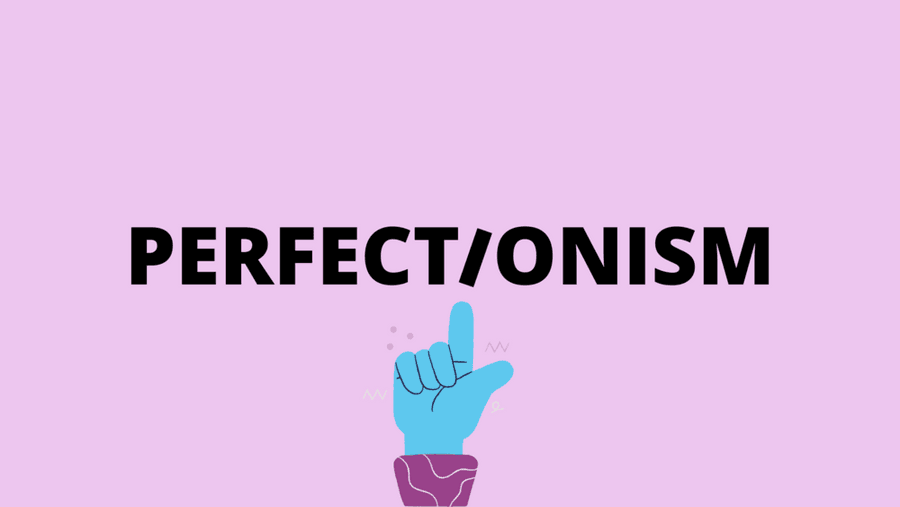How to Manage Your Perfectionism
Curated from: hbr.org
Ideas, facts & insights covering these topics:
12 ideas
·27.3K reads
77
2
Explore the World's Best Ideas
Join today and uncover 100+ curated journeys from 50+ topics. Unlock access to our mobile app with extensive features.
How to manage your perfectionism
Perfectionism is a double-edged sword. It can motivate you to perform at a high level and deliver top-quality work as it can cause you unnecessary anxiety and slow you down. So how you can harness the positives of your perfectionism while mitigating the negatives? What practices can you adopt to keep your perfectionism in check?
172
2.1K reads
Psychological Causes
Many perfectionists worry that if they let go of their [meticulousness and conscientiousness], it will hurt their performance and standing. And so they cling to their perfectionism even when it’s counterproductive.
167
2.06K reads
1) See the big picture
“Ask yourself: Am I using my time wisely? Am I being productive?” focusing on “maximizing the impact” of your work.
You’re going to be “less perfect about some things, so you can concentrate on what’s important.”
186
1.93K reads
2) Adjust your standards
Managing your perfectionism also requires you to calibrate your standards.
Ask always for feedback from others on your work to see if it is good enough from their perspective and adjust your own standards.
“What you’re saying doesn’t have to be the final word, it just has to contribute something useful.”
162
1.65K reads
"The pursuit of perfection is a bit like wandering on an aimless journey, You keep walking and walking, but you’re not sure that you’re getting any closer to your destination”
MATT PLUMMER
173
2.22K reads
3) Create a checklist
Create a checklist for each task to know when it will be done independently of your satisfaction level.
“You’re following a process with discrete and measurable goals,”. Once you’ve ticked off the items on your list, “you’re done.”
170
1.45K reads
4) Break the cycle of rumination
Many perfectionists have a proclivity to ruminate — repetitively mulling over a thought or problem without ever coming to a resolution. “It’s related to anxiety,”
People who ruminate tend to be “less forgiving of themselves.” It’s unhealthy, and it’s unproductive.
Identify your triggers. “learn to recognize when you’re ruminating,”
Don't Trust your first reaction, Try hard to get perspective and give yourself time and distance before taking action.
Think positive, Think about the successes you’ve had in the past, reminding you of meaningful outcomes you've accomplished without being 100% certain.
193
1.35K reads
5) Get perspective
Talk to someone about your tendencies, and be honest and open.
Make it clear that you want to hear how you come across. “Say, ‘I may get defensive, but I promise to think about what you say.’” And be sure to make good on that pledge.
164
1.32K reads
6) Monitor your process
Undertake a weekly review, in which you reflect on your progress.
Try to get some psychological distance and ask yourself: “Was there anything I avoided this week due to fear of making mistakes? Were there any instances where my perfectionism was not worth it? Were there any times this week when I took action, even when I felt uncertain, and ended up moving things forward?
The goal is to learn where perfectionism has a positive impact and where does not.
"you’re not fundamentally “changing course”; rather, you’re, “redirecting your personality.”
186
1.11K reads
Do
- Learn to recognize the point of diminishing returns when you’re aiming to complete a task perfectly. Sometimes just getting it done is a worthy goal.
- Reflect on your progress. Identify examples of when you successfully moderated your perfectionist tendencies.
- Calibrate your standards. Oftentimes what you’re writing or saying doesn’t have to be the final word, it just has to contribute something useful.
179
1.11K reads
Don't
- Mistake ruminating for problem-solving. When your mind is twisting and turning, seek out distractions to break the cycle.
- Toil in pursuit of an amorphous goal of perfection. Create a checklist that ensures you follow a process with measurable targets.
- Go it alone. Ask others — a trusted colleague, friend, or mentor — for perspective and support.
174
1.1K reads
IDEAS CURATED BY
CURATOR'S NOTE
I've always been struggling with being less productive and less accomplished until I've discovered that I actually suffer from perfectionism. This article had helped me at that time to start thinking differently and getting things done appropriately !
“
Mohamed ISSAOUI's ideas are part of this journey:
Learn more about psychology with this collection
Leonardo da Vinci's creative process
How to approach problem-solving like da Vinci
The importance of curiosity and observation
Related collections
Similar ideas
7 ideas
6 ideas
How to Manage Perfectionism
success.com
1 idea
Is Perfectionism Ruining Your Health? | Mark's Daily Apple
marksdailyapple.com
Read & Learn
20x Faster
without
deepstash
with
deepstash
with
deepstash
Personalized microlearning
—
100+ Learning Journeys
—
Access to 200,000+ ideas
—
Access to the mobile app
—
Unlimited idea saving
—
—
Unlimited history
—
—
Unlimited listening to ideas
—
—
Downloading & offline access
—
—
Supercharge your mind with one idea per day
Enter your email and spend 1 minute every day to learn something new.
I agree to receive email updates







